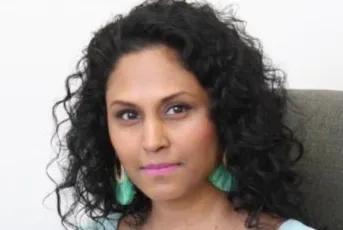A new kind of choice: when husbands take their wives’ surnames
Expectation

Irene Munthree.
Image: Supplied
FOR centuries, marriage carried an almost unquestioned expectation: a woman would take her husband’s surname. This tradition was more than cultural - it was once enshrined in law.
In many parts of the world, a wife’s legal and financial identity depended on adopting her husband’s name. Contracts, property deeds, even bank accounts often required it. The notion of choice was almost non-existent.
But today, the landscape has changed. Modern couples are rethinking what a surname means and who should give one up. Increasingly, men are choosing to take their wives’ surnames after marriage.
While still uncommon, this shift represents something profound: it gives couples a freedom that generations before them did not have - the freedom to decide together.
For men who adopt their wives' names, the decision often carries deep symbolism. Some see it as a gesture of equality, while others as an act of love. In certain cases, it’s a way of honouring a wife’s family legacy or cultural heritage.
Why should only women be expected to change their names? One gentleman remarked.
This trend also speaks to a broader cultural shift. Where marriage once meant subsuming a woman’s identity under her husband’s, it is now increasingly defined by negotiation and partnership.
Legal frameworks have caught up as well, making it easier for either partner to take the other’s name or even create an entirely new one. Hyphenated and blended surnames are also on the rise.
Still, the practice remains the exception. Social pressure continues to weigh more heavily on women, who are far more likely to change their names than men. Some critics argue that until the expectation is equally shared, true choice will remain limited.
Yet every couple that chooses differently adds momentum to the change. Ultimately, the right to choose is the real breakthrough. Where once there was only one accepted path, couples today can decide for themselves how they want to define their shared identity. In that choice, modern marriage reveals its most important feature: partnership built on equality.
Equality in a relationship is one of the strongest predictors of long-term satisfaction, trust, and intimacy. When both partners feel valued, respected, and heard, the relationship tends to flourish.
Irene Munthree is a transformational life coach.
Related Topics: